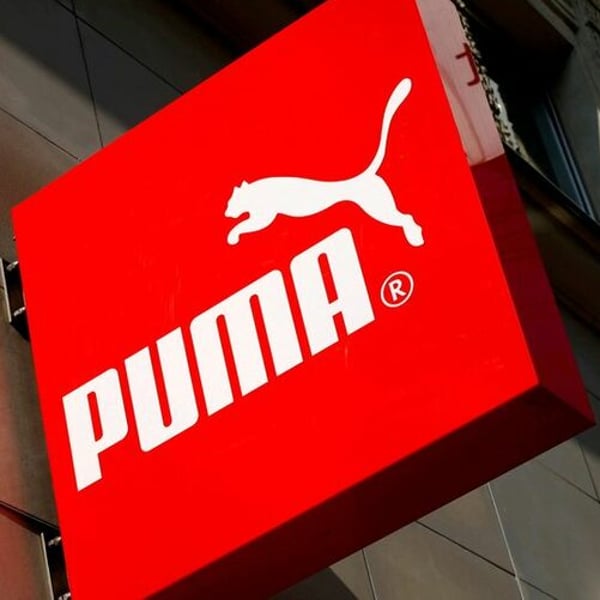By
Reuters API
Published
Feb 27, 2024
Puma expects a weak first half of the year in a challenging market, the German sportswear brand said on Tuesday, but its shares rose slightly as it stuck to annual targets set in January and announced a new campaign to boost its brand.
Sportswear companies including Adidas, Nike, and Puma, have seen demand weaken as customers battling with inflation cut spending on non-essential goods.
Shares in Puma gained 1% as the company kept last year’s dividend at 82 cents per share and announced a new brand campaign launching in April.
The marketing push comes after Puma has struggled to build brand strength over the past few years, Puma CEO Arne Freundt told reporters at the company’s headquarters in Herzogenaurach.
Puma aims to boost its brand by selling to more upmarket retailers, creating more products tailored to specific markets, and focusing on fewer, higher-profile, brand ambassadors.
The sportswear maker in 2023 started a second partnership with pop star Rihanna, as well as signing rapper A$AP Rocky and footballer Jack Grealish among others.
Puma reiterated its 2024 forecast for mid-single-digit percentage growth in currency-adjusted sales, and earnings before interest and tax of 620 million to 700 million euros.
“We continue to believe that management has been conservative with its guidance and a weaker industry outlook is already in the valuation,” Deutsche Bank analysts said in a note.
Puma’s shares have lagged Nike over the past year, dragging the company’s valuation down.
Commenting on the group’s share price performance, Puma chair Héloise Temple-Boyer said in the annual report: “I am convinced that it does neither reflect the actual value of our company nor the good operating performance.”
Puma’s fourth-quarter sales in the Europe, Middle East and Africa (EMEA) region dropped 5.2% to 667.9 million euros, a sharp reversal after a 9.9% year-on-year increase in the third quarter.
Puma said the slowdown was due to retailers in the region having excess stock. Puma makes most of its sales through retail partners, though revenues from its own stores have grown.
Currency-adjusted sales in the Americas fell by 6.4% to 846 million euros ($918.5 million), hit by a slump in the value of the Argentine peso. The devaluation will continue to weigh on profitability in the first half, Puma said.
Asia-Pacific, the only region that grew in the fourth quarter, saw sales rise 2.8% on a currency-adjusted basis to 468.3 million euros. Puma said it was led by strong growth in the Greater China region and India while sales in the rest of Asia were held back by weak consumer sentiment.
Freundt said he expected disproportionate growth in China this year, and saw the U.S. market resuming growth in the second half.
Overall, Puma’s footwear sales grew by 12.4% in 2023 while apparel sales dipped 0.3% as shoppers prioritise shoes over track suits and hoodies.
© Thomson Reuters 2024 All rights reserved.







